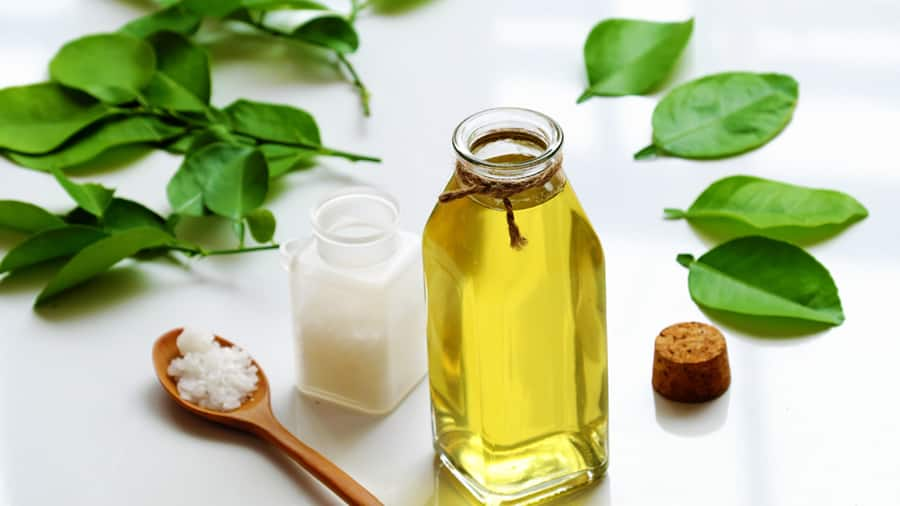Natural Recipe
Consider gargling this recipe a couple of times a day:
- 1 cup water
- 2 teaspoons echinacea tincture
- 3-4 drops myrrh essential oil (Commiphora myrrha)
- 2 drops tea tree essential oil (Melaleuca alternifolia)
Blend the ingredients in a dark container, and store in a cool, dark place. When it's ready for use, close your mixture and shake it well. Swish it in your mouth for up to a minute. Then spit it out and rinse your mouth with water.
Both essential oils in this recipe have research that backs up their antimicrobial activity. A research report published in the Drug Invention Today notes that tea tree oil possess potent antibacterial action.
Explore our oral care collection to keep your teeth and gums disease-free!
Just the Essentials
Echinacea is an immune-stimulating herb that can help fight inflammation and infection; however, you can make natural mouthrinse with just water and essential oil. Add one to two drops of essential oil to a quarter cup of water, and gargle with it. Tea tree and myrrh are good choices, but if your main concern is fresh breath, you can use peppermint or spearmint essential oil.
Buying Essential Oils
While the Fragrance & Flavour Development Centre (FFDC) was set-up in the year 1991 by the Ministry of MSME, Government of India, the quality of essential oils on the market yet varies greatly, so researching what you buy is a must.
As a start, look for essential oils in dark bottles (usually brown or blue) that protect the oils from the light. High-quality oils usually include both the Latin and the English name on the bottle and contain no additives. You should prefer a mouthwash that can kill 99 percent of germs on contact, reduce plaque and help prevent gingivitis.
This article is intended to promote understanding of and knowledge about general oral health topics. It is not intended to be a substitute for professional advice, diagnosis or treatment. Always seek the advice of your dentist or other qualified healthcare provider with any questions you may have regarding a medical condition or treatment.
ORAL HEALTH QUIZ
What's behind your smile?
Take our Oral Health assessment to get the most from your oral care routine
ORAL HEALTH QUIZ
What's behind your smile?
Take our Oral Health assessment to get the most from your oral care routine









